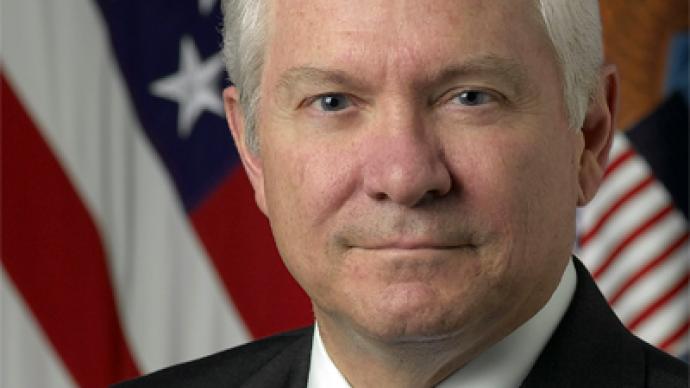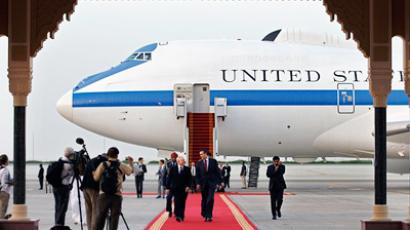Gates makes his last stand

As Secretary of Defense Robert Gates prepares to hand the reigns over to CIA Director Leon Panetta, he used his last weeks in office to warn that too many cuts in America’s $690 billion defense budget could spell danger for US security.
“The defense budget is not the cause of the deficit and debt problem we have as a country,” Gates told an audience at the American Enterprise Institute, a Republican think tank, on May 24, 2011. Known for his tough stance on redundant military spending and no bid contracts during the War on Terror, Gates warned that too many cuts would affect America’s national security. “It is important that we do not repeat the mistakes of the past when tough economic times or the winding down of a military campaign leads to steep and unwise reductions in defense,” Gates said in August 2010. According to the Stockholm International Peace Research Institute, global military spending increased by $20.6 billion in 2010—and $19.6 billion of that was the US alone. John Feffer, co-director of Foreign Policy in Focus, said that many European countries have cut their defense budgets in the face of large deficits, but the US has not followed suit. “There has been some movement in Europe. The United Kingdom has started the process, the Netherlands has started the process, Greece and Turkey—which have had a long-time rivalry—have had discussions about mutual reductions. Virtually all the countries in Europe face this problem; they're in a better situation than we are in the United States because they haven't spent as much money on military,” he said. Gates also said he hoped the Iraqi government would agree to an extended U.S. presence there beyond President Obama’s December 31, 2011 deadline, saying: “I hope they figure out a way to ask, and I think that the United States will be willing to say yes when that time comes.”Former defense contractor Michael O’Brien, author of “America’s Failure in Iraq,” said the gap is likely to be filled by defense contractors. “We keep the number of servicemen low because we don't want to re-institute the draft. It's a political hot potato. But no one bats an eye when 100,000 contractors go over to the same theater of operations,” said O’Brien.US military veteran and RT blogger Jake Diliberto said Gates has been very critical of US missions in Iraq, Afghanistan, Libya and elsewhere – which he sees as positive.“He has been, in my opinion, the best Secretary of Defense ever that we’ve had in the position,” he said. Diliberto argued that Gates said the US should be weary of making too many cuts, but was also keen to point out that certain cuts can be made to reduce excessive spending and maintain security.“The problem is not Gates,” he said. “The problem is the electorate, the military industrial complex, the lobbyists buying out the electoral body that continue to keep us in these wars.”














